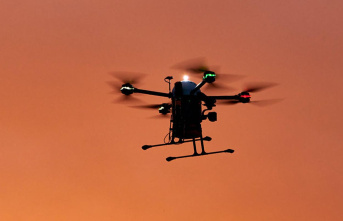Suddenly an itchy red spot appears on your arm or a mole looks weird. Anyone who has a health problem with their skin often has to wait a long time for an appointment - many practices only give appointments weeks or months in advance. Providers of skin screening apps advertise that they offer quick help for skin conditions. But does it work to recognize skin diseases in photos?
Stiftung Warentest examined eight apps in the Android and iOS versions. And an app only available for iPhones. They examined how the apps assess skin conditions such as age spots, malignant skin cancer or psoriasis. In addition, the product testers took a look at how well the applications can be operated and how the data of the users is handled.
The functionality of the apps is basically the same: users upload a photo of their skin condition and the image is evaluated. The evaluation is partly carried out by algorithms and partly by dermatologists. If doctors assess the uploaded images, users have a result within hours or days, the algorithm-based apps provide a short assessment directly.
The result: the apps cannot replace a medical examination. Many apps have recognized some skin changes quickly and correctly. This means that the users had a quick assessment of the condition and could use it to go to the dermatologist’s office or alleviate their condition themselves with an (over-the-counter) ointment. But: About every seventh skin cancer was not detected. A problem if users of the app feel safe and do not see a doctor because of the result.
Of all the apps examined, the product testers only recommend "AppDoc" (available for Android and IOS). The medical team behind the app was almost always correct with their assessments. The assessment of a skin area costs 25 euros. Stiftung Warentest recommends reading the assessment very carefully and taking it seriously if a visit to the doctor is recommended. Above all, consumers should always have skin cancer screening carried out in a dermatologist’s practice and not rely on apps.
The two test losers are "SkinScreener" and "Squin" - they both received a grade of 4. "SkinScreener", which specializes in skin cancer detection, made the most errors in the test. With "Squin", the medical team behind the app was mostly correct, but the app itself was unreliable and not very clearly designed. During the test, the testers did not receive an assessment in two cases despite payment.
You can find the complete chargeable test at Stiftung Warentest!












